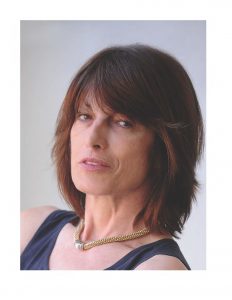We hope you will join us for the Fall 2019 Herman P. Schwan Distinguished Lecture by Dr. Gordana Vunjak-Novakovic, hosted by the Department of Bioengineering.
Date: Wednesday, November 6th, 2019
Time: 3:30-4:30 PM
Location: Glandt Forum, Singh Center, 3205 Walnut Street

Speaker: Gordana Vunjak-Novakovic, PhD, University Professor, The Mikati Foundation Professor of Biomedical Engineering and Medical Sciences, Columbia University in the City of New York
Abstract:
The classical paradigm of tissue engineering involves the integrated use of human stem cells, biomaterial scaffolds (providing a structural and logistic template for tissue formation) and bioreactors (providing environmental control, dynamic sequences of molecular and physical signaling, and insights into the structure and function of the forming tissues). This “biomimetic” approach results in an increasingly successful representation of the environmental milieu of tissue development, regeneration and disease. Living human tissues are now being engineered from various types of human stem cells, and tailored to the patient and the condition being treated. A reverse paradigm is now emerging with the development of the “organs on a chip” platforms for modeling of integrated human physiology, using micro-tissues that are derived from human iPS cells and functionally connected by vascular perfusion. In all cases, the critical questions relate to our ability to recapitulate the cell niches, using bioengineering tools. To illustrate the state of the art in the field and reflect on the current challenges and opportunities, this talk will discuss: (i) anatomically correct bone regeneration, (ii) bioengineering of the lung, (iii) heart repair by a cell-free therapy, and (iv) the use of “organs on a chip” for patient-specific studies of human physiology, injury, healing and disease.
Funding: NIH, NSF, New York State, Mikati Foundation, Schwartz Foundation
Bio:
Gordana Vunjak-Novakovic is a University Professor, the highest academic rank at Columbia University that is reserved for only 16 professors out of 4,000, and the first engineer in the history of Columbia to receive this highest distinction. She is also the Mikati Foundation Professor of Biomedical Engineering and Medical Sciences, and on faculty in the Irving Comprehensive Cancer Center, College of Dental Medicine, Center for Human Development, and Mortimer B Zuckerman Mind Brain Behavior Institute. She directs the Laboratory for Stem Cells and Tissue Engineering that is a bioengineering lead of the Columbia Stem Cell Initiative and a home of the NIH Tissue Engineering Resource Center. She also serves on the Columbia President’s Task Force for Precision Medicine and the Executive Leadership of the Columbia University Medical Center. She received her Ph.D. in Chemical Engineering from the University of Belgrade in Serbia where she was on faculty until 1993, holds a doctorate honoris causa from the University of Novi Sad, and was a Fulbright Fellow at MIT.
The focus of her research is on engineering functional human tissues for regenerative medicine and studies of development and disease. Gordana published 3 books, 60 book chapters, 400 articles (including those in Nature, Cell, Nature Biotechnology, Nature Biomedical Engineering, Nature Communications, Nature Protocols, PNAS, Cell Stem Cell, Science Advances, Science Translational Medicine). With over 44,000 citations and impact factor h=121, she is one of the most highly cited individuals. She gave 420 invited talks, and has 101 licensed, issued or pending patents. With her students, she co-founded four biotech companies: epiBone (epibone.com), Tara Biosystems (tarabiosystems.com), Xylyx Bio (xylyxbio.com), and Immplacate (immplacatehealth.com).
She is a member of the Academia Europaea, Serbian Academy of Arts and Sciences, National Academy of Engineering, National Academy Medicine, National Academy of Inventors, and the American Academy of Arts and Sciences.
